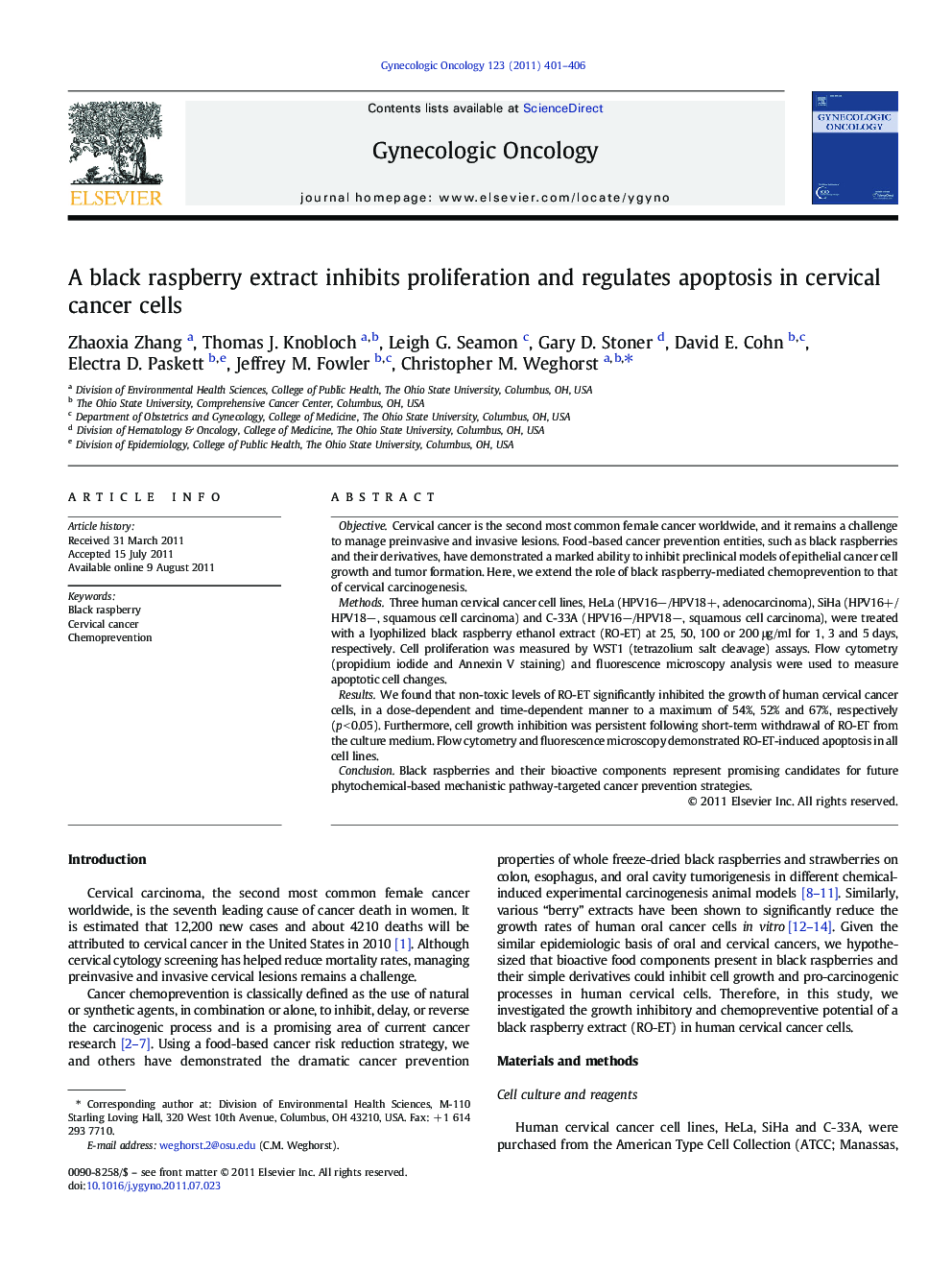| Article ID | Journal | Published Year | Pages | File Type |
|---|---|---|---|---|
| 3945456 | Gynecologic Oncology | 2011 | 6 Pages |
ObjectiveCervical cancer is the second most common female cancer worldwide, and it remains a challenge to manage preinvasive and invasive lesions. Food-based cancer prevention entities, such as black raspberries and their derivatives, have demonstrated a marked ability to inhibit preclinical models of epithelial cancer cell growth and tumor formation. Here, we extend the role of black raspberry-mediated chemoprevention to that of cervical carcinogenesis.MethodsThree human cervical cancer cell lines, HeLa (HPV16−/HPV18+, adenocarcinoma), SiHa (HPV16+/HPV18−, squamous cell carcinoma) and C-33A (HPV16−/HPV18−, squamous cell carcinoma), were treated with a lyophilized black raspberry ethanol extract (RO-ET) at 25, 50, 100 or 200 μg/ml for 1, 3 and 5 days, respectively. Cell proliferation was measured by WST1 (tetrazolium salt cleavage) assays. Flow cytometry (propidium iodide and Annexin V staining) and fluorescence microscopy analysis were used to measure apoptotic cell changes.ResultsWe found that non-toxic levels of RO-ET significantly inhibited the growth of human cervical cancer cells, in a dose-dependent and time-dependent manner to a maximum of 54%, 52% and 67%, respectively (p < 0.05). Furthermore, cell growth inhibition was persistent following short-term withdrawal of RO-ET from the culture medium. Flow cytometry and fluorescence microscopy demonstrated RO-ET-induced apoptosis in all cell lines.ConclusionBlack raspberries and their bioactive components represent promising candidates for future phytochemical-based mechanistic pathway-targeted cancer prevention strategies.
► RO-ET inhibits growth of HeLa, SiHa and C-33A human cervical cancer cells. ► The growth inhibition is persistent following short-term withdrawal of RO-ET. ► RO-ET induces apoptosis in HeLa, SiHa and C-33A cells.
